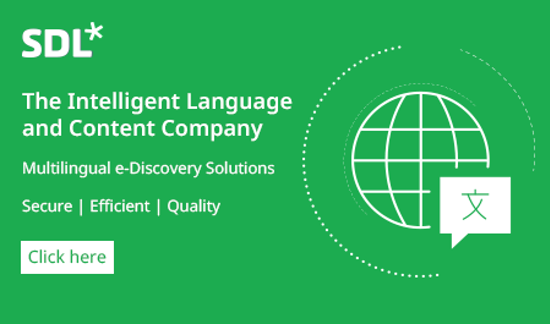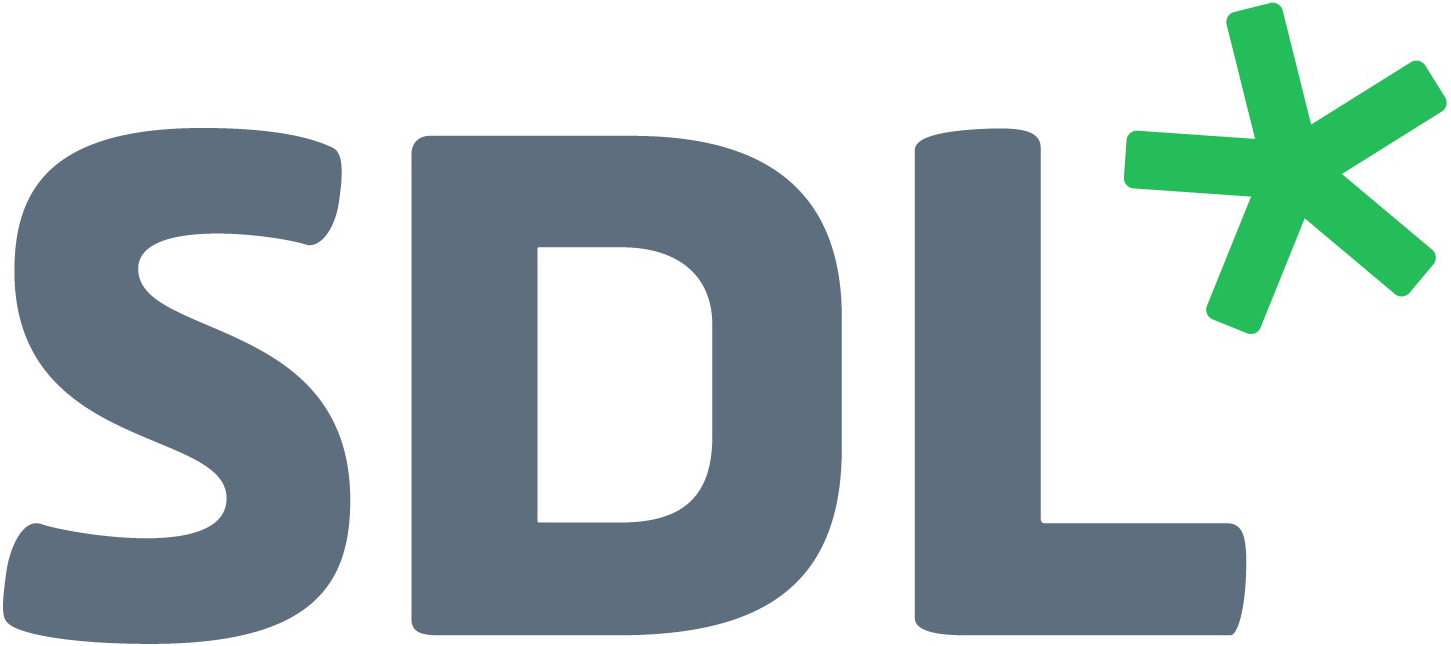 By David Hetling, SDL
By David Hetling, SDL
Our recent webinar, ‘Accelerating eDiscovery with Secure Translation Automation,’ gave rise to discussion on a number of critical challenges facing financial services providers and law firms – if you missed it, you can listen to the recording here.
Chief among these conversation points was just how many applications currently exist for the use of eDiscovery in these two industries. More importantly, our panelists covered extensively the means by which such applications are now helping to drive a transformation from reactive investigation of activity to proactive monitoring of behavior with eSurveillance.
Once the scale of the multilingual, multi-format content problem was thoroughly illustrated by Jane Hendricks, SDL’s Machine Translation and Linguistic AI Product Marketing Manager, a panel of industry practitioners from law firms DLA Piper and Orrick Herrington & Sutcliffe, outlined responses to the challenges in business.
Moving the needle in client responsiveness
Armin Hendrich, Partner in the Litigation & Regulatory Group at DLA Piper, talked through how eDiscovery had expanded in recent years from its original sweet-spots in court-ordered discovery and government-driven investigations to analysis of client data ranging from internal reviews to civil code class actions. He added that integrating with tools that enable automated translation or redaction had enabled the firm to stay ahead of the curve and constantly improve upon client expectations in this practice area.
Jeremiah Weasenforth, Managing Project Attorney in the Analytics Group at Orrick, expanded on the integration benefits for eDiscovery, summarizing how his firm’s approach to selection of best-in-class platforms helped them to optimize efficiency and accelerate the building of cases for clients through AI and advanced analytics.
That being said, Hendrich also raised how much of a challenge exists in maintaining security and data protection where complex cases involve the use of multiple platforms and human interactions. This necessitates an end-to-end process that demands the utmost levels of security and information governance at each stage, so vendors with practical solutions to overcoming this need are highly valued in such workflows.
Weasenforth agreed and added that it was a process of continuous improvement to ensure that the firm is able to maximize efficiencies, find new ways to automate their methods and constantly embrace challenges like analyzing new content sources and formats.
Scaling content analysis with machine translation
SDL’s moderator, Adam Muzika, moved the panel onto the subject of cross-border content, a growing feature in investigations that adds further complexity to unravelling the finer details of many cases. Weasenforth explained that cases can involve the analysis of documentation in literally dozens of languages and that meeting this demand with human translators was simply unrealistic; he added that, despite some imperfections, machine translation was delivering a key benefit in “weeding out documents you do not care about to focus in on the ones you do.”
Hendrich highlighted once again the subject of security and that scaling the automation of translations securely was “a game-changer,” adding that the ability to complement translations with data sources like thesauri, translation memories and organizational language models was enabling DLA Piper to overcome some of the nuances in context that have historically caused inconsistencies in understanding.
Drive for innovation is transforming firms
Our panelists agreed that the burgeoning industry in legaltech is helping firms to rapidly innovate and to embark on process improvements that are benefitting their clients as well as enabling greater internal collaboration too.
However, Hendrich sounded a word of warning that data protection in some legal jurisdictions can impact the potential for success in growing areas like eSurveillance. Specifically, despite the enthusiasm that may exist in countries like the US and UK, there may be limitations on the use of such technologies in countries where privacy and labor laws restrict (or even forbid) the handling of data for the purpose of monitoring behavior. Nevertheless, it was accepted that, with the right data governance in place, much can be achieved to assist clients in becoming more proactive.
Laying the right foundations is a critical first step
The audience Q&A with which the webinar finished highlighted the breadth of practice areas where technology can assist finance and legal firms to become more efficient as well as also offering the potential to reduce cost; in answering this, the panelists identified corporate litigation, competition law, employment law and mergers and acquisitions (M&A) as high value starting points as well as the area of regulatory compliance that is already an established area for eDiscovery initiatives.
Providing a secure, end-to-end solution for eDiscovery, including integration with established platforms like Relativity, is the first port of call. SDL’s approach in this area was covered fully, including the steps in the workflow that help to deliver quicker insight at global scale.
Watch the webinar recording to see the full story on this fast-growing area of business practice.
Alternatively, if you would like to find out more about our scalable and secure machine translation, click here, or for more information on our multilingual eDiscovery integration with Relativity, click here.
About the Author
David Hetling is Industry Marketing Director for Regulated Industries at SDL plc. He is responsible for defining the strategy and go-to-market plan for SDL’s solutions for Financial Services and Legal practitioners globally.
For more, visit: https://www.sdl.com/products-and-solutions/translation/sdl-multilingual-ediscovery









 SDL
SDL Christy Ma
Christy Ma Bertram Chen
Bertram Chen







